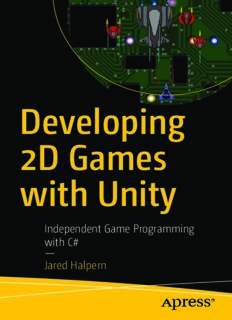Introduction
My video game “history” started in the public library when I discovered a series of beat-up, paperback books with titles resembling, “How to Write Your Own Computer Games in BASIC.” By copying code from the book into an editor, I was able to create rudimentary adventure games.
In college, I used C++ and Direct-X to create a Bejeweled clone with a Star Trek theme. As an iOS Developer, I eventually worked on a virtual-pet game using Apple’s Scene Kit and Sprite Kit frameworks.
When I discovered the Unity game engine, everything I had been attempting to do just came together. Instead of spending half a week writing the code to parse and slice sprites, Unity allowed me to drag and drop a sprite sheet, click a button, then get on with development.
I could finally focus on making games, instead of spending the majority of my time writing code. It’s possible to create video games great video games, without Unity or any game engine. But it will take much, much longer than it needs to. You’ll spend time and effort solving problems that aren’t necessary to solve any more. It may take years to finish. Because life will also be happening during those years, it’s possible, and in fact likely, that you’ll never finish the game.
Speaking from experience I rarely finished any of the game projects that I started before I was introduced to Unity. Teddy Roosevelt once was quoted in his autobiography, “Do what you can, with what you’ve got, where you are.” I subscribe to that mindset, and I also believe that hard work alone won’t always help you accomplish your goals. Success in life can often be about leverage: leveraging whatever resources you have, wherever you are, for maximum impact.
The trick for making the most of your time is to find multipliers: things that allow you to produce a multiple of what you’d otherwise be capable of producing. Unity xx is one such multiplier.
Unity allows you to take whatever time you have nights, weekends, a 30-minute lunch break, and maximize the usage of that time toward making games. By using Unity to get the most out of your time, you’re more likely to actually finish your game.
When I set out to write this book, I wanted to write the type of book I’d want to read if I were learning Unity for the first time.
Hopefully I succeeded. In the following pages, you’ll learn the fundamental skills required to create your own video games in Unity, and perhaps leave your own mark on the future of gaming. Let’s get started!









Be the first to review “Developing 2D Games With Unity: Independent Game Programming With C#”